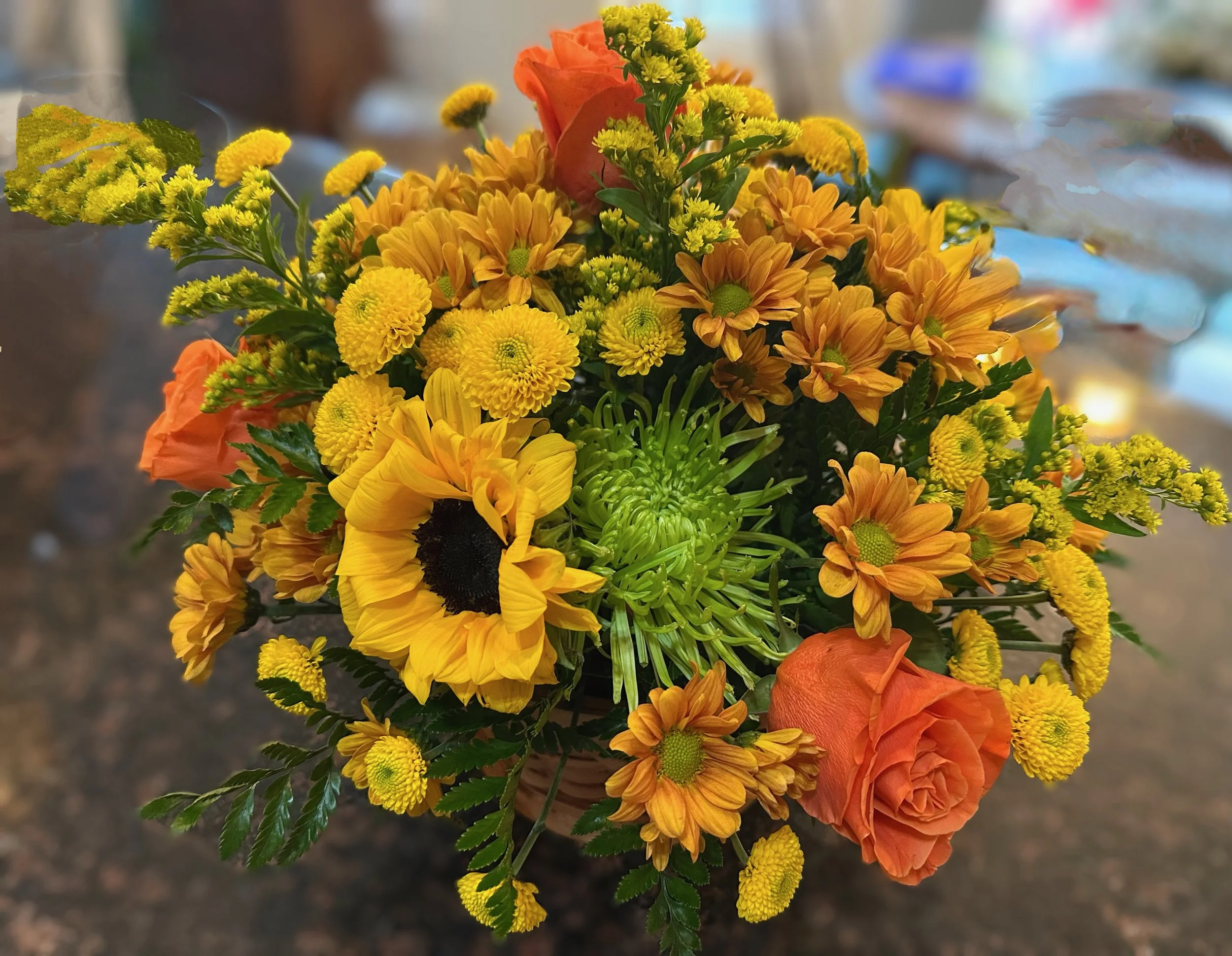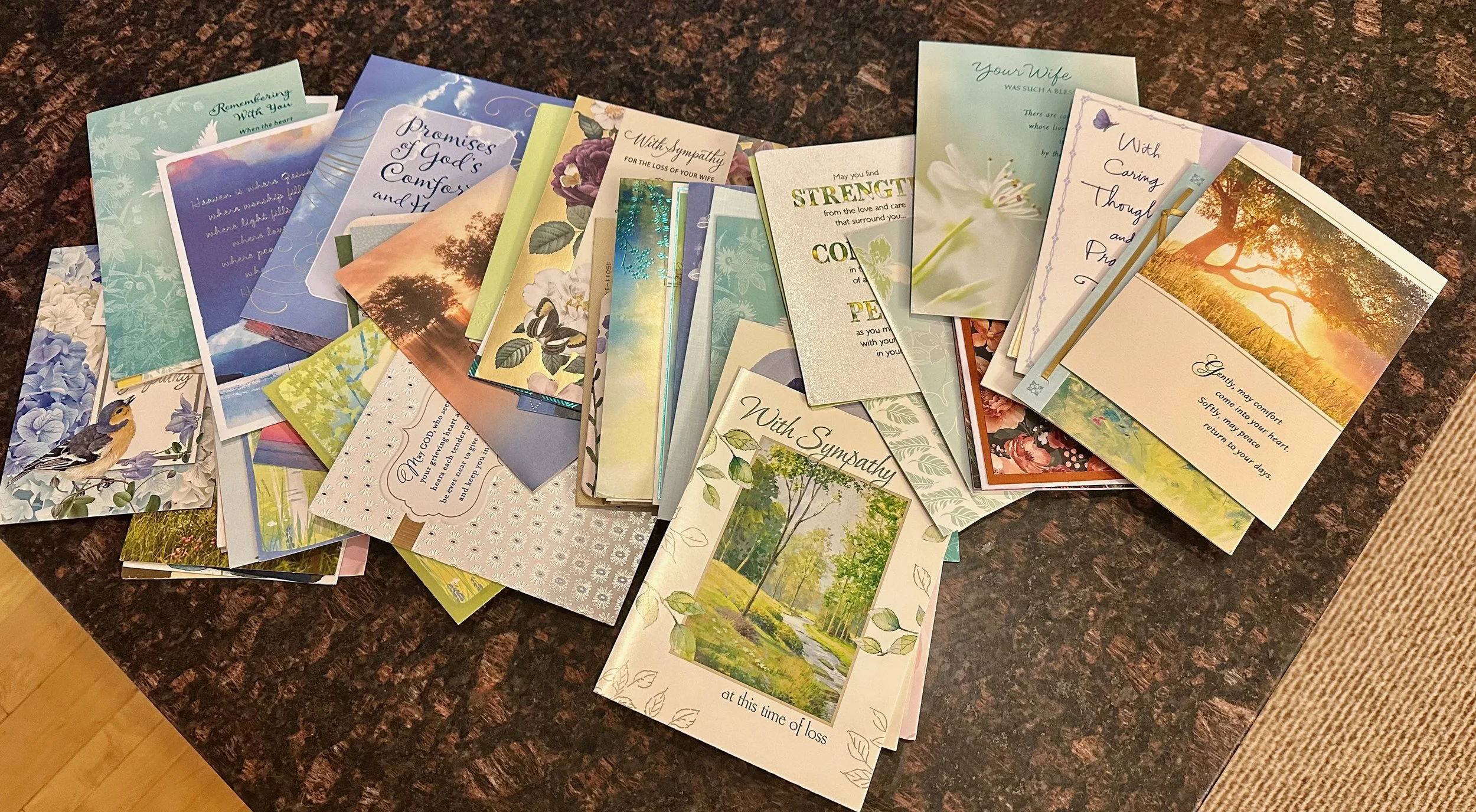When someone close loses someone close, here’s what I hope I’ll do
Someday, when someone I know has been upended by loss, I want to do what others have done for me in the last month.
I will contact him or her quickly, and in person.
Three different friends volunteered to drop everything and come be with me only hours after Evelyn died. I welcomed Jeff and Martha and their gracious offer: “We’re just going to sit with you. We will be silent if that’s what you’d like. You can talk or say nothing, whatever you want. We don’t expect anything of you. We just don’t want you to be alone. And we’re bringing lunch.”
In the weeks since that day . . .
I have been fed lunch by several others . . .
. . . received phone calls from friends I haven’t spoken to in years . . .
. . . accepted a friend’s invitation to attend an informal bonfire with a circle from a local Griefshare group . . .
. . . received information about a workshop that group is conducting tonight: “How to Survive the Holidays.” (Maybe I’ll write about it.) . . .
. . . poured out my grief to a friend who had repeatedly offered to get together with me.
I am an extrovert and a verbal processor, so I’ve desperately needed all this human contact. But even an introvert needs at least one someone to listen and understand. I hope that can be me.
I’ll send food.
Yes, it seems like a cliché. Yes, the bereaved family has only so much space to store casseroles and cookies and dip and crackers and sodas. But little communicates love any better than food you don’t need to fix yourself.
A friend from church organized other friends from church to provide a meal for my family. We enjoyed the sumptuous spread here at home before we went to spend the evening at church for Evelyn’s visitation and funeral. Then afterwards, we dug in again as we huddled close and laughed and cried while we ate. Some out-of-town friends came at lunchtime the next day, and there was still plenty to feed them. The leftovers in my pantry will last for weeks.
All this was a greater blessing than I would have anticipated. When in doubt, I’ll send food, or a gift card for buying more food at another time. (I received one of those just last week.)
If I don’t contact quickly, I’ll realize later is still good.
One week after the funeral, I received a beautiful bouquet from a long-distance friend who is also a gardener and a widower.
Most of the funeral flowers were dead by then, but his generosity brightened the living room till this weekend.
I’m still receiving cards. Some of the most meaningful came the last few days. The senders took time to think carefully about what they wanted to say, and they wrote notes I will always cherish.
So many cards! And amazingly, no two are alike.
I’m eating lunch this week with another widower friend who was out of the country when Evelyn passed. Sunday I listened to a voicemail from a longtime friend who was Evelyn’s minister decades ago before I knew either of them.
All this helps to address one difficulty with grief: it still weighs heavy on the bereaved after the rest of the world has gone back to normal. And the world must go on. All my friends must return to their jobs and their families and their responsibilities and their fun. The world can’t stop just because my wife died.
I understand. I’m trying to get on with my everyday duties, too. But sometimes something inside me wants to holler, “Hey! See me here? My hair is combed, my smile is set, and my schedule is full. But that doesn’t mean I’m OK.”
It’s a big help when someone (often someone who has also experienced great loss) asks, “How are you doing?” and wants to hear the real answer.
I’ll share specific memories of the person who has passed.
“I’m sorry for your loss” is appropriate and expected. But when someone writes me they loved her laugh or they appreciated her kindness, I read the note twice and then go back to read it a third time. It warms me to hear, “She was my favorite professor.” Her cousin told me she and her sister used to dance with Evelyn in her little bedroom in the country when they were kids. I never knew that.
Nor did I know Evelyn once had a student who paid her school bill by tending bar downtown—an unlikely choice for a Bible college enrollee. Some would have condemned the girl. Evelyn went and sat with her at the bar.
When someone tells me something they loved about Evelyn, I believe they’re feeling at least some of the loss I’m experiencing. That’s good.
So much these days is so good. I’ve said that before. Part of this new experience is the surprising love and attention I’m receiving. Along with the pain and the tears come the hugs and the heartfelt concern. What would I do without them?
I’m grieving, for sure. But I hope I’m also learning how to be a blessing someday when someone close to me loses someone close to them.


